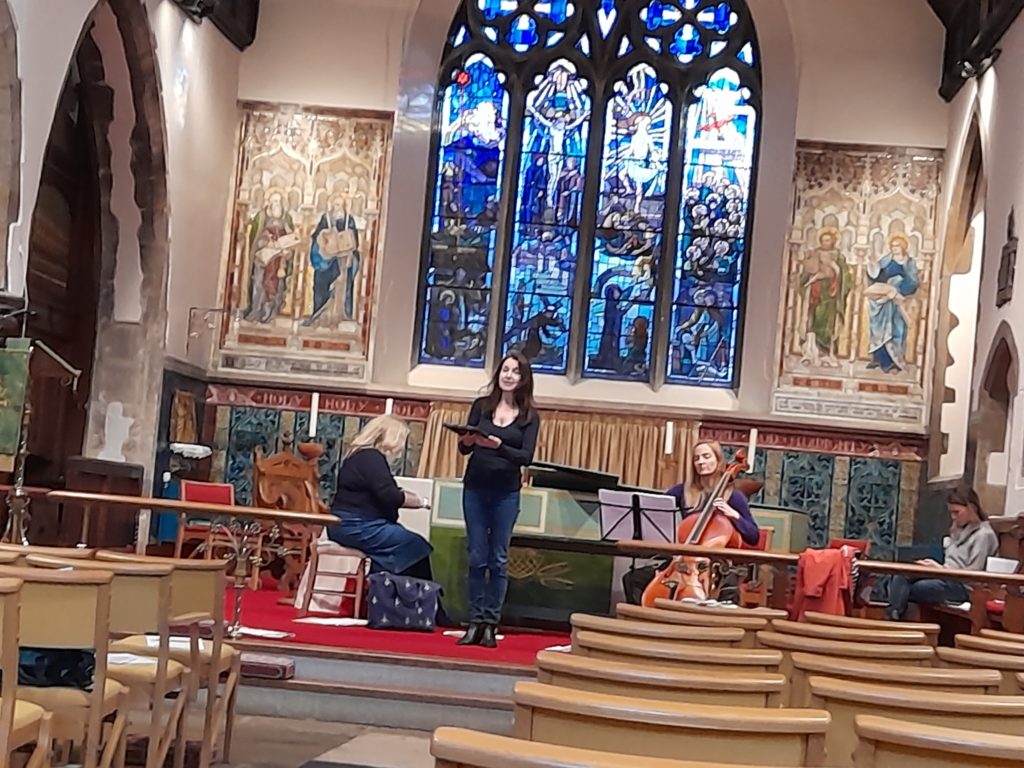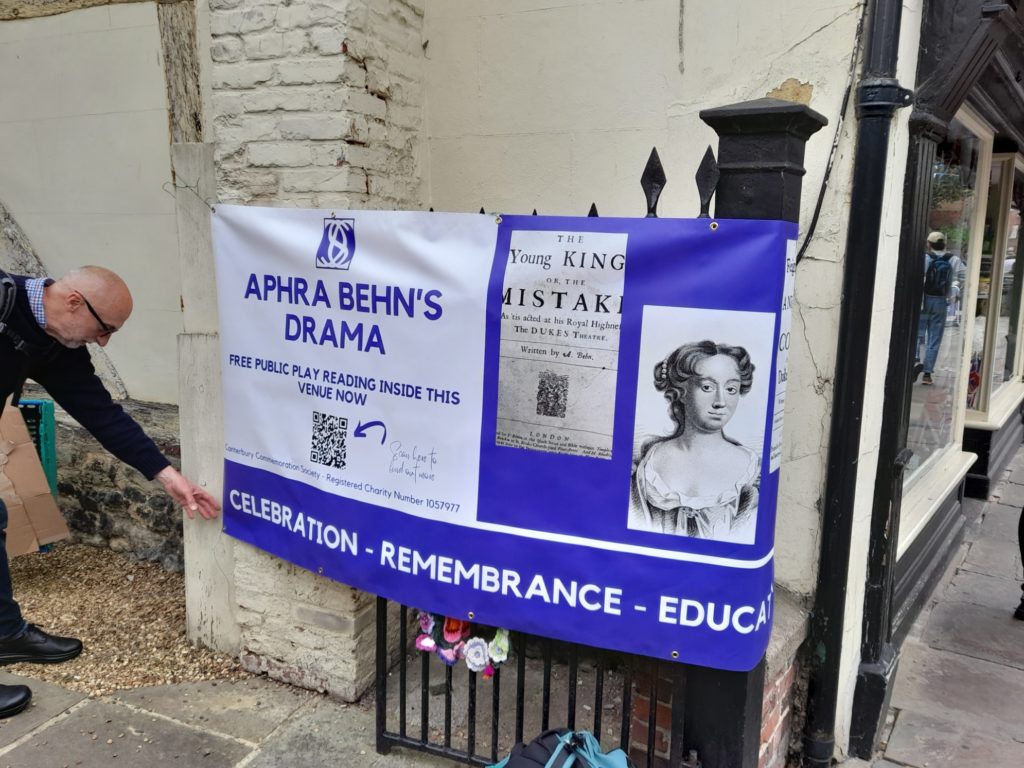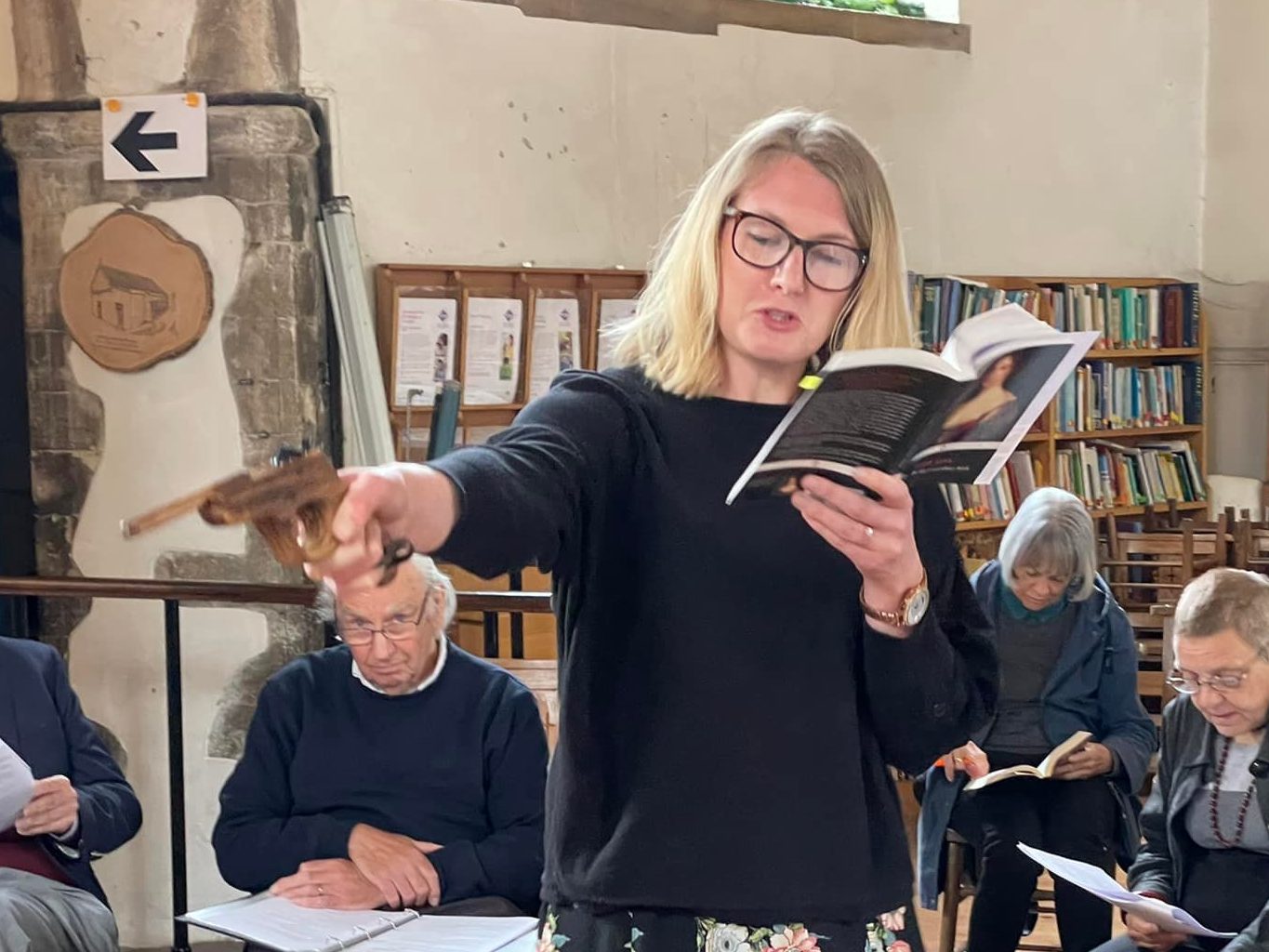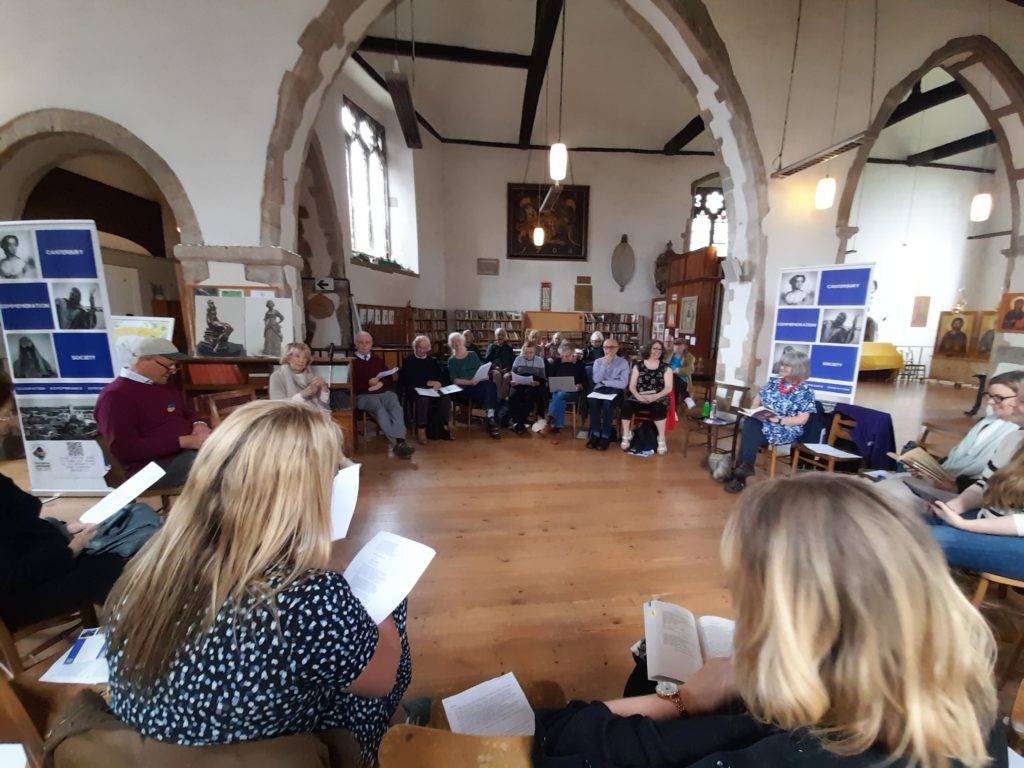Report by Elaine Hobby
‘We’re bringing Aphra home,’ declared Nicola Loud, as she opened the first Aphra Behn Society event at the Canterbury Festival on 21 October. And so we were. The 12th-century St Paul’s Church in Canterbury is where Aphra’s parents were married in 1638, and I’d spent the afternoon in a somewhat dreamy state, finding myself more moved than I’d realized I’d be at having Behn’s words performed in the church where that Bartholomew Johnson—Elizabeth Denham wedding took place.


L: Melanie Gutteridge performs Behn’s words. R: The Musicke Company members in live performance. Images: Elaine Hobby.
The ability of the actor Melanie Gutteridge to bring Aphra’s many voices alive was of course a huge contributor to the power of what followed. Equally important were the extraordinary talents of The Musicke Company, Philippa Hyde (soprano), Ciara Hendrick (mezzo-soprano), Daisy Vatalaro (baroque ’cello), and Helen Rogers (harpsichord) as they wove their way through not only – of course – excerpts from Henry Purcell’s Abdelazer Suite (written for Behn’s tragedy), but also selections from John Playford, Thomas Arne, George Frideric Handel, Giovanni Bononcini, and lots more Purcell.

My job for the evening had been to suggest the Behn passages that would best harmonise – or challenge – the music. To my delight, most popular with the audience (according to the applause but also the questionnaire that dozens of them kindly completed) was Oroonoko’s speech calling on his fellow enslaved people to rebel. But, as many commented, it was hard to choose a favourite when the options ran from ‘Love in fantastic triumph sat’ to ‘On her loving two equally’, via ‘Epitaph on the Tombstone of a Child, the Last of Seven that Died before’, ‘To the fair Clarinda, imagined more than woman’, and many more. The most applauded piece of music was Arne’s ‘When Daisies Pied’, with its teasing ‘Cuckoo’ chorus. It was a wonderful, magical evening, most ably introduced and curated by Nicola Loud.
Fortunately, The Musicke Companye and Melanie Gutteridge were so delighted with the event and its reception that they are talking of taking the show on a tour. For updates, watch this space. If you are planning an event that might feature a stunning performance of Behn, Purcell and friends, do get in touch with E-ABIDA.



Recent Comments